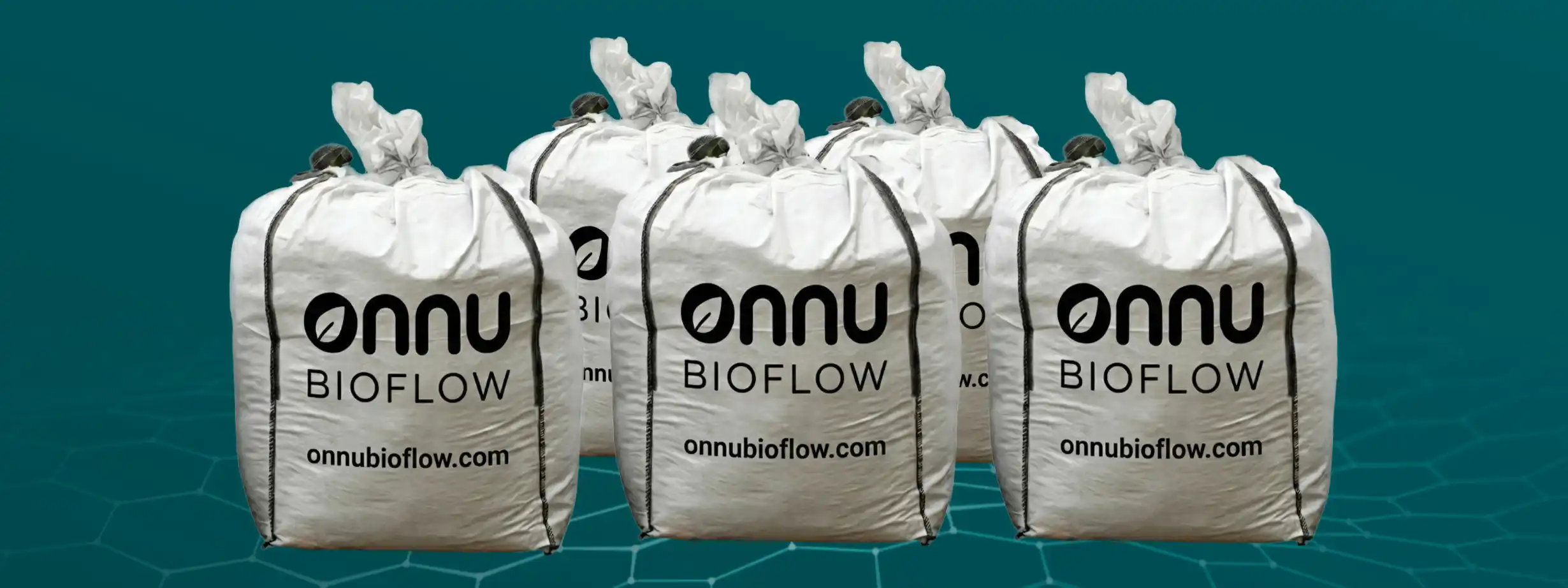Biochar
Sometimes referred to as ‘black gold’, biochar stores carbon for thousands of years.

What is Biochar?
Biochar is a black, solid substance, which bears a strong resemblance to charcoal. It is produced during pyrolysis - burning biomass at a very high temperature in the absence of oxygen. Biochar is lightweight, fine-grained and very porous, which are all properties that are useful in its primary usage as a soil amendment.

Biochar's many properties make it an excellent soil additive, but it can also be used for a variety of other applications.
Biochar is a recalcitrant, which means it can endure in soils for thousands of years.

Biochar applications
Soil improver – Either applied directly, or through mixing with compost, biochar improves water retention, increases beneficial bacteria and enzymes, and reduces the need for chemical fertilisers. Effects are long-lasting and can result in 15% greater crop yields.
Animal feed supplement - When ingested by livestock, biochar improves nutritional intake delivering health and growth benefits, and by increasing nitrogen compounds in the manure, makes it more effective as a natural fertiliser.
Low carbon building – Biochar is being considered as a replacement for aggregates in building materials due to its ability to create carbon-negative buildings, as well as its high porosity.
Industrial uses - Biochar can be used in water filtration to remove heavy metals and pollutants, or as a reductant in metals manufacturing.
As a catalyst – High electrical conductivity, high porosity and high stability mean biochar makes a versatile, cost-friendly catalyst. Processes such as biodiesel production, tar removal and anaerobic digestion can all utilise biochar to optimise their operations.
Biochar feedstock
Biochar can be made from all kinds of biomass feedstocks. Each type of biomass has its own physiochemical characteristics which influence the biochar produced, meaning a biochar production facility can tailor their process to create “designer” biochar.

Biochar properties
Biochar with different physical, biological and chemical characteristics will have different applications. Biochar users focused on optimal carbon sequestration will choose a biochar with high fixed carbon content, whilst those using it for soil remediation will prioritise other attributes like water holding capacity (WHC) and specific surface area (SSC). Most applications make the most of biochar’s versatility by utilising more than one of biochar’s properties.

Common uses for biochar

Soil improvement
Improving soil health, water retention and reducing fertilizer needs

Water filtration
Removing and storing harmful chemicals and metals

Construction materials
Added to building materials to add strength, and reduce cost and emissions

Peat bog restoration
Greatly increases the growth rate of valuable peat bogs, themselves valuable carbon sinks

Animal feed supplement
Improving animal health and nutrient intake
Want to know more about biochar?
We can customise your biochar output and identify the best applications to suit your needs.








